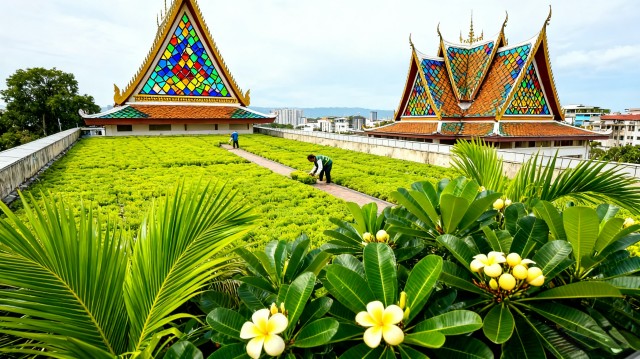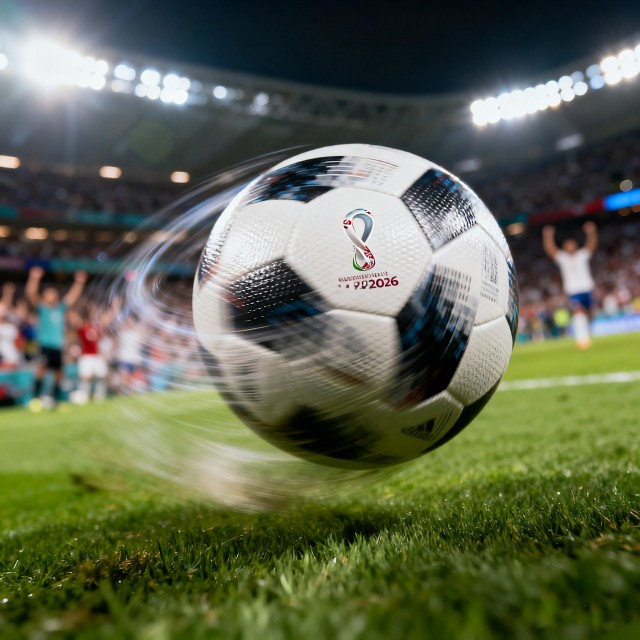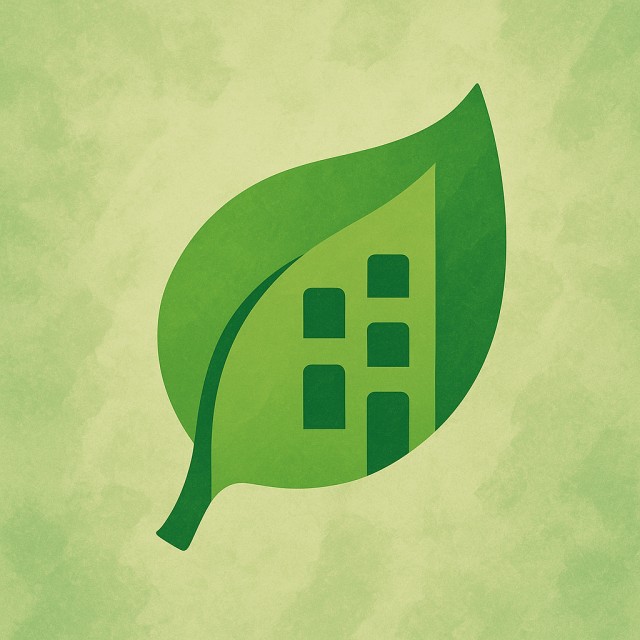Reinventing Synthetic Turf Sports Fields with Eco-Friendly Drainage and Cooling Solutions
2024-11-01
In the quest for eco-friendly sports fields, synthetic turf has often been a solution of choice for high-use areas. However, challenges like excessive surface temperatures and ineffective drainage systems persist, especially in urban zones. Enter Hoensoey Cells—a modular, high-strength geocellular drainage and cooling solution designed to address these issues sustainably.
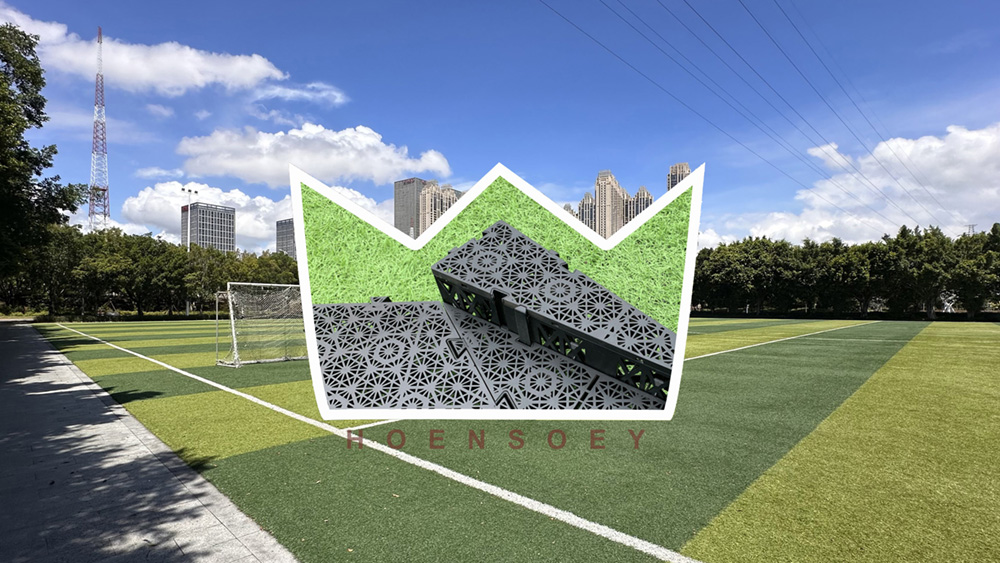
Modular Drainage Redefined: Efficient, Customizable, and Compact
The hexagonal, honeycomb structure of
Hoensoey Cells sets them apart as a versatile and highly efficient drainage
system. Traditional drainage solutions can be bulky and disruptive to install,
but Hoensoey’s modular design offers flexible assembly options with minimal
excavation. The cells direct rainwater from the surface into a concealed
underground storage area, allowing rapid drainage and preventing water
accumulation.
Notably, Hoensoey’s structure supports
substantial surface loads, making it resilient for high-traffic areas or sports
fields that endure frequent, intense use. This modular adaptability supports
both small and large synthetic turf fields, maximizing efficiency while
minimizing construction impact.
Beyond Drainage: Hoensoey’s Approach to Cooling Synthetic Turf
Temperature control is another area where
synthetic turf falls short, often leading to uncomfortably high surface
temperatures on sunny days. Hoensoey Cells contribute to natural evaporative
cooling by allowing water stored underground to rise through capillary action.
This water gradually evaporates at the surface, cooling the field similarly to
how soil moisture cools natural grass.
Studies have shown that fields equipped
with Hoensoey Cells can maintain surface temperatures around 37°C, compared to
the 70°C typical of traditional synthetic turf, significantly enhancing player
comfort and safety.
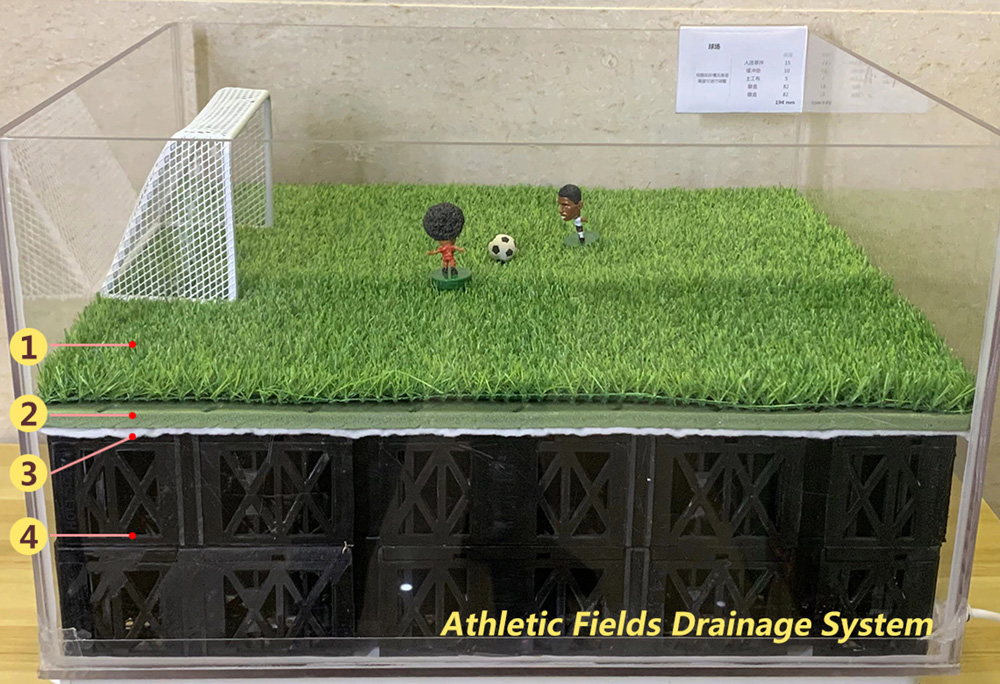
Diagram:Hoensoey Athletic Field Drainage and Cooling System
This
diagram illustrates a cross-sectional view of an athletic field equipped with
Hoensoey Cells for optimized drainage and cooling. The layered structure from
top to bottom includes:
- Synthetic Turf Layer: A durable,
weather-resistant artificial grass surface designed for diverse sports
applications.
- Infill Layer: Located directly under the
turf, this layer (sand or rubber granules) adds cushioning, enhances
traction, and contributes to player safety.
- Filter Fabric Layer: Acting as a filtration
barrier, this layer prevents infill materials from clogging the drainage
system while allowing water to pass through.
- Hoensoey Cells Drainage
Layer: The
core drainage system composed of high-strength, honeycomb-like Hoensoey
Cells. This layer captures and stores rainwater, facilitating efficient
drainage and natural cooling through capillary action, keeping the field
playable and comfortable year-round.
The
Hoensoey system’s multi-layered design showcases how synthetic turf fields can
achieve optimal conditions for play by managing water and maintaining surface
temperatures, thus supporting sustainable and resilient athletic field
environments.
Sustainable Water Management: Closing the Loop on Rainwater Use
Hoensoey’s system is not just a drainage tool but also a sustainable water management solution. Rainwater captured and stored within the system can be repurposed, whether for evaporative cooling, irrigation, or groundwater recharge. This closed-loop water cycle alleviates pressure on local water resources, especially in drought-prone urban areas.
Constructed from durable, recycled
materials, Hoensoey Cells align with green construction standards, adding to
their appeal for projects seeking LEED or other sustainability certifications.
Applications in Action: Proven Results from Real-World Installations
Hoensoey’s applications span various
climates and .conditions. For example, GIO Stadium Canberra in Australia
integrates Hoensoey Cells to manage both heavy rain and heat, ensuring
year-round usability. Meanwhile, Stade de la Source in France leverages
Hoensoey’s drainage and cooling capabilities to create a reliable sports field
for its community, regardless of weather fluctuations.
These projects showcase Hoensoey’s capacity
to enhance field performance through improved drainage, natural cooling, and
sustainable water use, demonstrating its potential for broader application in
sports infrastructure.
The Future of Synthetic Turf is Sustainable
Hoensoey Cells bring a new dimension to
synthetic turf management by integrating drainage, cooling, and sustainable
water use into one seamless system. By tackling temperature control, efficient
drainage, and eco-friendly water cycling, Hoensoey offers a comprehensive
solution that transforms synthetic fields into high-performing, environmentally
conscious sports spaces. This technology holds promise for communities and
cities striving for sustainable infrastructure in high-use recreational areas.
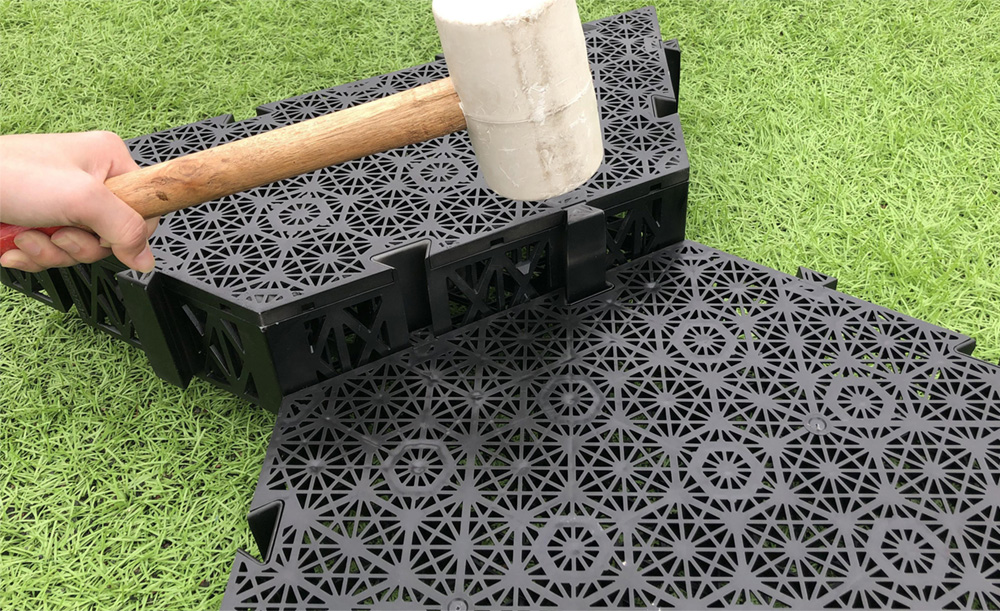
AnteriorGreen Hill Shanghai: A Sustainable Urban Renewal Model
PróximaHT-508 Green Roof Module: The Smart Choice for Cost-Effective Green Roofing
Message




